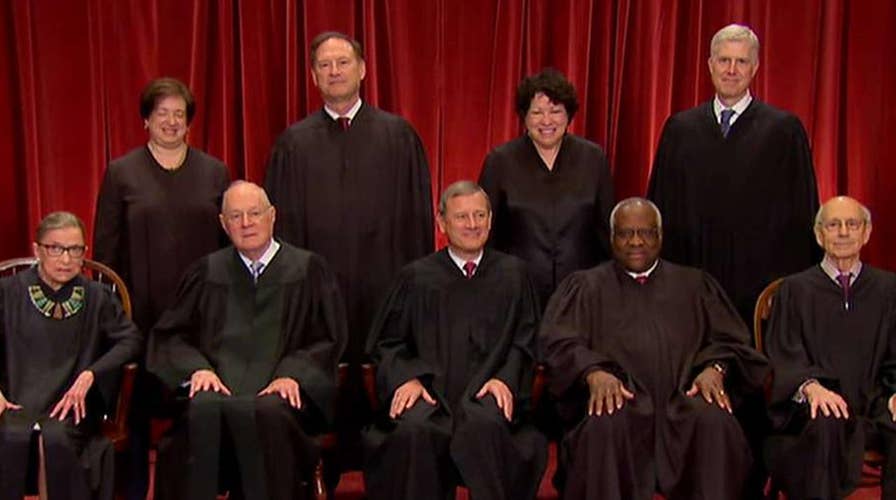Supreme Court to hear labor union challenge
Conservative majority could overturn a four decade-old Supreme Court ruling that allows public sector unions to collect fees from non-members to cover costs of negotiating contracts for all employees.
Mark Janus is a child-support specialist in Illinois who is forced to pay union dues in order to keep his job. As a public employee, he believes that violates his First Amendment right to decide for himself what causes to fund. Soon he will get a chance to argue his case, Janus v. AFSCME, Council 31, before the U.S. Supreme Court – and the outcome will impact millions of Americans nationwide.
In about 20 states, public workers like Janus who are not members of a union can nonetheless be compelled to pay what are known as “agency fees” to a government employee union as a condition of employment. The fees ostensibly help defray the costs incurred by labor unions to collectively bargain on behalf of non-members.
But in reality, collective bargaining in the public sector is inherently political. Public workers like Janus are forced to pay a union to advocate on political questions such as taxpayer-funded wages and pensions.
And despite legal restrictions, agency fees fund more than just activities related to collective bargaining negotiations over wages, benefits and working conditions. Agency fees directly fund government unions’ more overt political agendas as well.
Will the Supreme Court rule that no worker should be forced to financially support an organization against his or her will, especially one that is highly political like public employee unions?
For example, the labor union named in the Janus case – the American Federation of State, County and Municipal Employees (AFSCME) Council 31 – hosts conventions that are, at least in part, political in nature. Yet unions are permitted to charge non-members for these events. So AFSCME Council 31 uses agency fees to cover a portion of its convention expenses, which amounted to $268,855 in 2016.
Here is a snapshot at what took place at the national AFSCME convention in 2016, the most recent presidential election year. One program was titled “AFSCME for Hillary.” Union officials called on members to become engaged in the union’s effort to “take back the U.S. Senate and flip control of Congress.” Breakout sessions were conducted to sharpen members’ political advocacy skills.
AFSCME is not alone in charging non-members for politics. Other prominent government employee unions, like the National Education Association and American Federation of Teachers, hold conventions that are political in nature. Those unions also pass on part of the cost onto non-members.
For decades, millions of public employees have been forced to pay union dues, resulting in one of the largest compelled-speech schemes in America. It is past time to end the practice and instead provide workers the freedom to choose how to spend their earnings.
Will the Supreme Court rule that no worker should be forced to financially support an organization against his or her will, especially one that is highly political like public employee unions?
Justice Samuel Alito once opined that “agency-fee provisions unquestionably impose a heavy burden on the First Amendment interests of objecting employees.” Let’s hope his fellow justices agree and stop government from making public sector workers pay for speech they disagree with.








































